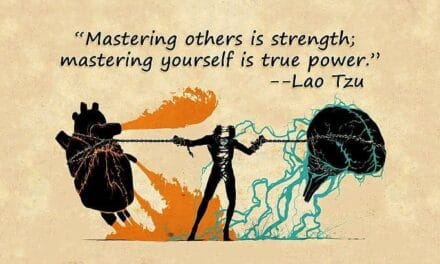In today’s fast-paced business environment, effective leadership is more crucial than ever, making leadership coaching an invaluable resource for organizations aiming to succeed. Did you know that organizations with strong coaching practices significantly outperform their competitors in employee engagement and retention? This compelling statistic underscores the transformative power of leadership coaching in nurturing leaders who can inspire their teams to achieve exceptional results. In this blog post, we will explore the various aspects of leadership coaching, from its benefits and implementation strategies to overcoming common challenges and understanding future trends. Whether you are a seasoned executive or an aspiring leader, this comprehensive guide will provide you with the insights necessary to leverage coaching for personal and organizational growth.
Understanding Leadership Coaching
Leadership coaching is a powerful tool designed to enhance the skills and capabilities of individuals in leadership positions. It provides leaders with the guidance, support, and knowledge necessary to improve their effectiveness and drive team performance.
Importance of Leadership Coaching in Today’s Business Environment
In an era where technological advancement and rapid change are the norms, the need for effective leadership is more critical than ever. Leaders must adapt to shifting landscapes, motivate their teams, and foster innovation. Here’s why leadership coaching is particularly vital:
Navigating Complexity: As businesses become more complex, leaders need strategies that help them navigate challenges effectively.
Enhancing Decision-Making: Coaching can sharpen leaders’ thinking styles, improving their decision-making capabilities.
Inspiring Team Engagement: Engaged leaders tend to foster engaged teams. Leadership coaching can equip leaders to inspire and motivate their workforce.
Key Benefits for Technology Business Leaders
For technology business leaders, the benefits of leadership coaching extend beyond individual growth. Here are some crucial advantages:
Improved Communication: Effective communication skills are essential in tech environments. Coaching helps leaders articulate their vision and goals clearly.
Conflict Resolution Skills: With diverse teams often working together, conflict is inevitable. Leadership coaching can provide tools for conflict management and resolution.
Strategic Thinking Development: Tech leaders must think critically about business strategies and innovation. Coaching enhances their ability to formulate and implement robust strategies.
In summary, leadership coaching not only develops individual capabilities but also plays a significant role in transforming organizations. By investing in coaching for their leaders, technology firms can cultivate a proactive, agile, and innovative culture.
For more insights into leadership coaching strategies, visit Harvard Business Review for expert articles and resources.
The Role of a Leadership Coach
A leadership coach plays a pivotal role in the development of effective leaders. By providing personalized guidance and support, they empower leaders to unlock their potential and enhance their contributions to the organization.
What Makes a Great Leadership Coach?
Not all coaches are created equal. A great leadership coach possesses specific qualities that enable them to guide leaders effectively. Here are some key attributes:
Experience in Leadership: A strong background in leadership roles helps coaches understand the challenges their clients face.
Excellent Listening Skills: Effective coaching hinges on active listening, allowing coaches to grasp their clients' perspectives and tailor their approach.
Empathy and Emotional Intelligence: A coach who can relate to leaders' emotions and struggles is better equipped to provide support and guidance.
Tailored Coaching Methods: Great coaches adapt their techniques to suit the unique needs and goals of each individual they work with.
The Coaching Process: How It Works
Leadership coaching is a structured process that typically involves several stages:
Initial Assessment: The process begins with an assessment to identify the leader's strengths, weaknesses, and development opportunities.
Goal Setting: Coaches work with leaders to set specific, measurable goals that align with their personal and organizational objectives.
Coaching Sessions: Through regular sessions, coaches provide tools, insights, and strategies for achieving the set goals.
Progress Monitoring: Effective coaches continually monitor progress, offering feedback and adjusting strategies as needed.
Evaluation and Feedback: At the end of the coaching period, leaders evaluate their growth and reflect on their achievements with their coach.
Different Coaching Styles and Methodologies
Leadership coaching encompasses various styles, each serving different needs and preferences. Some commonly utilized methodologies include:
Transformational Coaching: Focuses on inspiring leaders to achieve their highest potential and foster lasting change within their organizations.
Behavioral Coaching: Concentrates on modifying specific behaviors that may hinder a leader's effectiveness.
Results-Oriented Coaching: Aims to achieve specific business outcomes through targeted leadership development.
Incorporating diverse methodologies allows leadership coaches to meet the individual needs of their clients while maximizing the effectiveness of their coaching initiatives.
For more information on effective coaching practices, consider exploring resources from LinkedIn Learning that offer courses on leadership development and coaching techniques.
Identifying Leadership Development Needs
Before embarking on a journey of leadership coaching, it is essential to assess the unique needs of leaders and their teams. Understanding where gaps exist and identifying areas for growth can significantly enhance the effectiveness of any coaching program.
Assessing Team Dynamics and Individual Capabilities
Evaluating the existing dynamics within a team and the skills of individual leaders lays the groundwork for targeted development. Here are a few effective methods to carry out this assessment:
360-Degree Feedback: Utilize feedback from peers, subordinates, and supervisors to gain a comprehensive view of a leader's strengths and weaknesses.
Self-Assessment Tools: Encourage leaders to engage in self-reflection using various assessment tools like personality tests and leadership style evaluations.
Observation: Conduct observations during team meetings and interactions to gain insights into communication styles and leadership effectiveness.
Recognizing Leadership Gaps and Areas for Improvement
Once assessments are complete, the next step is to identify any leadership gaps. Consider focusing on the following areas:
Communication Skills: Are leaders effectively conveying their ideas and expectations?
Conflict Management: How well do they handle conflicts within the team?
Strategic Thinking: Do they possess the skills to think critically and make informed decisions?
By pinpointing these gaps, organizations can devise targeted coaching strategies to help leaders develop these competencies further.
Tools and Techniques for Analysis
Employing various tools and techniques can facilitate a more accurate assessment of leadership needs:
Surveys and Questionnaires: Collect quantitative data regarding team perceptions of leadership effectiveness.
Interviews: Engage in one-on-one conversations with leaders and team members to gather qualitative insights.
Performance Metrics: Analyze relevant KPIs (Key Performance Indicators) to evaluate leadership impact on team performance and productivity.
Through thorough analysis and evaluation, organizations can create a tailored roadmap for leadership coaching that is aligned with their specific needs, ensuring a more impactful development process.
For additional resources on performance assessment and leadership development, visit McKinsey & Company for high-quality insights and practices in leadership coaching and organizational excellence.
Crafting a Personalized Leadership Coaching Plan
Creating a personalized leadership coaching plan is crucial for adapting coaching efforts to the unique needs and goals of each leader. This tailored approach fosters greater engagement and improves outcomes for both individuals and organizations.
Setting Specific, Measurable Goals
The foundation of any effective coaching plan lies in establishing clear objectives. By defining specific and measurable goals, leaders can track their progress and stay motivated. Consider the following steps:
Align Goals with Organizational Objectives: Ensure that individual leadership goals support broader business objectives and vision.
Use the SMART Framework: Goals should be Specific, Measurable, Achievable, Relevant, and Time-bound.
Document Goals: Write down the identified goals, as this helps to solidify commitment to achieving them.
Aligning Coaching Objectives with Business Outcomes
The success of leadership coaching can be significantly enhanced when coaching objectives are connected to tangible business outcomes. Here’s how to align these components effectively:
Identify Key Performance Indicators: Determine which metrics will indicate progress in achieving both leadership development and organizational success.
Engage Stakeholders: Collaborate with key stakeholders, such as HR and senior leadership, to ensure alignment of coaching objectives with company priorities.
Communicate Expectations: Clearly communicate coaching objectives and align them with the leaders' responsibilities and expectations within the organization.
Continuously Adapting Coaching Strategies
A coaching plan is a dynamic tool that should evolve as leaders grow and business conditions change. Key strategies for adaptation include:
Regular Check-ins: Schedule regular coaching sessions to assess progress towards goals and adjust strategies as needed.
Solicit Feedback: Encourage leaders to provide feedback on their coaching experience, which may highlight necessary adjustments.
Evaluate External Factors: Stay informed about changes in the industry or organization that may affect leadership strategies and coaching needs.
By crafting a personalized coaching plan that incorporates these elements, organizations can maximize the effectiveness of leadership coaching initiatives and ensure leaders are equipped to meet the challenges of their roles.
For more insights on creating effective coaching plans, explore resources from Gallup that discuss best practices in leadership development and performance management.
Implementing Leadership Coaching in Your Team
Integrating leadership coaching into your organization is essential for fostering a culture of continuous development and enhancing overall team performance. Proper implementation ensures that coaching initiatives are effective and aligned with business goals.
Best Practices for Integrating Coaching into Your Organization
To successfully implement leadership coaching, consider the following best practices:
Gain Executive Buy-In: Secure support from top management to champion coaching initiatives, demonstrating leadership development as a strategic priority.
Promote Coaching as a Culture: Position coaching not just as a program but as a fundamental aspect of your organizational culture, encouraging all employees to engage in personal and professional development.
Provide Training for Coaches: Ensure that internal coaches are equipped with the right skills and tools to facilitate effective coaching processes.
Encouraging a Coaching Culture Among Team Members
Building a culture that values coaching is vital for its long-term success. Here are a few strategies to encourage participation:
Lead by Example: When senior leaders engage in coaching, it sets a tone for the rest of the organization, highlighting its importance.
Celebrate Coaching Successes: Acknowledge and share success stories related to coaching outcomes to motivate other leaders to participate.
Create Peer Coaching Opportunities: Encourage team members to engage in peer coaching, reinforcing collaborative learning and support among colleagues.
Leveraging Technology for Remote Coaching Sessions
In today’s digital age, technology can significantly enhance the accessibility and effectiveness of leadership coaching. Consider using:
Video Conferencing Tools: Platforms such as Zoom or Microsoft Teams facilitate face-to-face interaction, making remote coaching more personal and engaging.
Learning Management Systems: Utilize digital platforms to deliver coaching materials and resources, allowing leaders to access information at their convenience.
Feedback and Assessment Tools: Implement online tools that allow for real-time feedback and progress tracking, ensuring leaders remain engaged throughout their coaching journey.
By effectively implementing these strategies, organizations can establish a robust leadership coaching framework that boosts individual capabilities and overall team effectiveness, leading to enhanced business outcomes.
For further insights on leadership development strategies, you can explore resources from Deloitte that specialize in workforce and leadership solutions.
Measuring the Impact of Leadership Coaching
Evaluating the effectiveness of leadership coaching is crucial for understanding its impact on individual leaders and overall team performance. By measuring the results, organizations can assess the return on investment of their coaching initiatives and make informed decisions about future development efforts.
Key Performance Indicators (KPIs) for Evaluating Effectiveness
Establishing relevant KPIs is vital for effectively measuring the success of leadership coaching. Consider the following indicators:
Employee Engagement Scores: Higher engagement levels often correlate with effective leadership and can be measured through employee surveys.
Retention Rates: Monitoring turnover rates before and after coaching initiatives can provide insight into the coaching's impact on leader effectiveness.
Performance Improvement: Regular performance reviews can highlight changes in leaders’ performance metrics following coaching sessions.
Gathering Feedback from Participants and Stakeholders
Feedback is an invaluable tool for assessing the effectiveness of leadership coaching. Strategies for collecting this feedback include:
Surveys and Questionnaires: Utilize pre- and post-coaching surveys to gauge participant satisfaction and perceived value.
One-on-One Interviews: Conduct interviews with both coaches and participants to gather qualitative insights on the coaching experience.
Focus Groups: Organizing focus groups with stakeholders can reveal collective perceptions about the effectiveness of coaching initiatives.
Long-Term Benefits and ROI of Coaching Initiatives
The long-term benefits of leadership coaching often extend beyond immediate results. Key factors to consider when evaluating ROI include:
Enhanced Leadership Skills: Over time, leaders can develop essential skills that contribute to higher team productivity and innovation.
Improved Team Performance: Longitudinal studies can highlight correlations between coaching initiatives and overall team success.
Cultural Transformation: Effective leadership coaching can lead to cultural shifts that promote a learning-oriented organization, benefiting the company as a whole.
By meticulously measuring the impact of leadership coaching, organizations gain essential insights into its effectiveness, empowering them to refine their approaches and maximize development outcomes.
For further insights on measuring the effectiveness of training and development programs, refer to PwC for in-depth research and analysis in the field of human resources and organizational development.
Overcoming Challenges in Leadership Coaching
Implementing leadership coaching initiatives can come with various challenges that organizations must navigate to ensure success. Recognizing and addressing these obstacles early can help maintain momentum and foster a positive coaching environment.
Common Obstacles Teams Face During the Coaching Process
Teams may encounter several common challenges during leadership coaching, including:
Resistance to Change: Leaders may be resistant to new approaches or feedback, fearing it may expose flaws or lead to discomfort.
Time Constraints: Busy schedules may hinder leaders from fully committing to coaching sessions, limiting the effectiveness of the program.
Misalignment of Goals: When coaching objectives do not align with business or personal goals, leaders may struggle to see the value in the process.
Strategies to Address Resistance to Change
To foster a more receptive atmosphere for leadership coaching, consider the following strategies:
Establish Trust: Build trust between coaches and participants by creating an open and non-judgmental environment for discussions.
Communicate Benefits: Clearly articulate the personal and organizational benefits of coaching to help leaders understand its value.
Involve Leaders in Goal Setting: Including leaders in the goal-setting process can promote buy-in and greater commitment to coaching initiatives.
Ensuring Sustained Engagement and Commitment
Keeping participants engaged throughout the coaching process is critical for its success. Here are some techniques to ensure continuous commitment:
Schedule Regular Check-Ins: Frequent check-ins help maintain focus on goals and adjust strategies as necessary.
Celebrate Milestones: Acknowledge and celebrate progress, no matter how small, to keep motivation levels elevated.
Encourage Peer Support: Foster a network of support among leaders to create accountability and enhance learning through shared experiences.
By proactively addressing these challenges, organizations can maximize the effectiveness of leadership coaching programs, facilitating enduring change and improvement in leadership capabilities.
For further insights on overcoming challenges in organizational development, you can explore resources from Bain & Company that emphasize practical strategies for enhancing leadership and performance.
Future Trends in Leadership Coaching
As the dynamics of the workplace continue to evolve, so too does the field of leadership coaching. Staying informed about emerging trends is crucial for organizations striving to remain competitive and effective in developing their leaders.
Evolution of Coaching Methodologies
The methodologies used in leadership coaching are continually adapting to address the complexities of modern organizations. Key trends include:
Increased Focus on Emotional Intelligence: Coaching now emphasizes the development of emotional intelligence, helping leaders cultivate better relationships and understanding among team members.
Integration of Psychometric Assessments: Tools such as personality assessments are increasingly being integrated into coaching practices to tailor strategies to individual leaders’ strengths and weaknesses.
Holistic Coaching Approaches: There is a shift towards combining various coaching modalities, such as mindfulness techniques alongside conventional coaching strategies, to support leaders' overall well-being.
The Role of Artificial Intelligence and Digital Tools
The rise of technology is reshaping how leadership coaching is delivered and experienced. Consider the following developments:
AI-Powered Coaching Platforms: These platforms can provide personalized insights and recommendations based on data analysis, enhancing the coaching experience for individual leaders.
Virtual Reality (VR) Coaching: Emerging technologies such as VR offer immersive training experiences, allowing leaders to practice scenarios in a controlled environment.
Real-Time Feedback Tools: Digital solutions that facilitate instant feedback enable ongoing adjustments to coaching strategies, making the process more dynamic.
Emerging Trends in the Tech Leadership Landscape
In the tech sector, specific trends are shaping the focus of leadership coaching:
Agile Leadership Development: As organizations adopt agile methodologies, coaching is evolving to support leaders in adopting agile practices and enhancing adaptability.
Diversity and Inclusion: Coaching initiatives are increasingly focusing on promoting diversity and inclusion within leadership ranks to foster innovation and collaboration.
Remote Leadership Skills: With the rise of remote work, coaches are helping leaders develop the skills necessary to manage distributed teams effectively.
By embracing these future trends in leadership coaching, organizations can ensure that their coaching initiatives remain relevant and effectively address the needs of modern leaders.
For more insights on the future of leadership development, consider visiting Forbes for articles and reports on trends impacting leadership coaching and organizational growth.
Conclusion
Leadership coaching is a transformative process that equips leaders with the skills, insights, and support necessary to excel in their roles. As we’ve explored throughout this article, effective coaching not only enhances individual capabilities but also fosters a culture of continuous improvement within organizations.
Recap of the Transformative Power of Leadership Coaching
Personalized Development: Tailored coaching programs address the unique strengths and weaknesses of each leader, ensuring focused growth.
Alignment with Business Goals: When coaching objectives align with organizational goals, the impact is multiplied, leading to better business outcomes.
Enhanced Team Performance: Well-coached leaders can inspire and engage their teams, driving higher performance and productivity.
Encouraging Continued Investment in Leadership Development
To fully capitalize on the benefits of leadership coaching, organizations should:
Commit to Ongoing Development: View coaching as a continuous journey rather than a one-time initiative.
Support a Coaching Culture: Foster an environment where coaching is valued and encouraged across all levels of leadership.
Regularly Evaluate Impact: Continuously assess the effectiveness of coaching programs and be willing to adapt based on feedback and results.
Call to Action: Take the First Step in Transforming Your Team Through Leadership Coaching
If your organization is ready to embrace the positive impact of leadership coaching, now is the time to act. Consider initiating a coaching program or investing in additional resources to support your leaders. The future of your organization hinges on the strength of its leaders, and effective coaching can pave the way for success.
For more resources and information on implementing leadership coaching, visit Center for Creative Leadership, a leading organization in the field of leadership development, to explore their extensive offerings and insights.
Frequently Asked Questions
What is leadership coaching?
Leadership coaching is a personalized development process that helps leaders enhance their skills, improve their decision-making, and foster effective communication within their teams. It involves working with a coach who provides guidance, support, and feedback tailored to the leader's specific needs and organizational goals.
How long does the leadership coaching process typically take?
The duration of the leadership coaching process can vary based on the individual’s goals and the coaching framework used. Generally, coaching engagements can range from several weeks to several months, with many programs consisting of regular sessions over a defined period. Continuous coaching may also be beneficial for long-term development.
What are the benefits of leadership coaching?
Leadership coaching offers numerous benefits, including improved communication skills, enhanced decision-making abilities, greater emotional intelligence, and increased team engagement. Additionally, it can lead to a more productive work environment and drive organizational success by developing strong leaders who inspire their teams.
How can organizations ensure the effectiveness of their leadership coaching programs?
To ensure effective leadership coaching, organizations should align coaching objectives with business goals, invest in qualified coaches, and regularly assess progress through feedback and performance metrics. Fostering a culture that values coaching and continuous development is also essential for long-term success.
Can leadership coaching be conducted remotely?
Yes, leadership coaching can be conducted remotely using various digital platforms and communication tools. Virtual coaching sessions can offer flexibility for leaders, allowing them to engage in coaching regardless of their location while maintaining effective communication and collaboration with their coaches.





